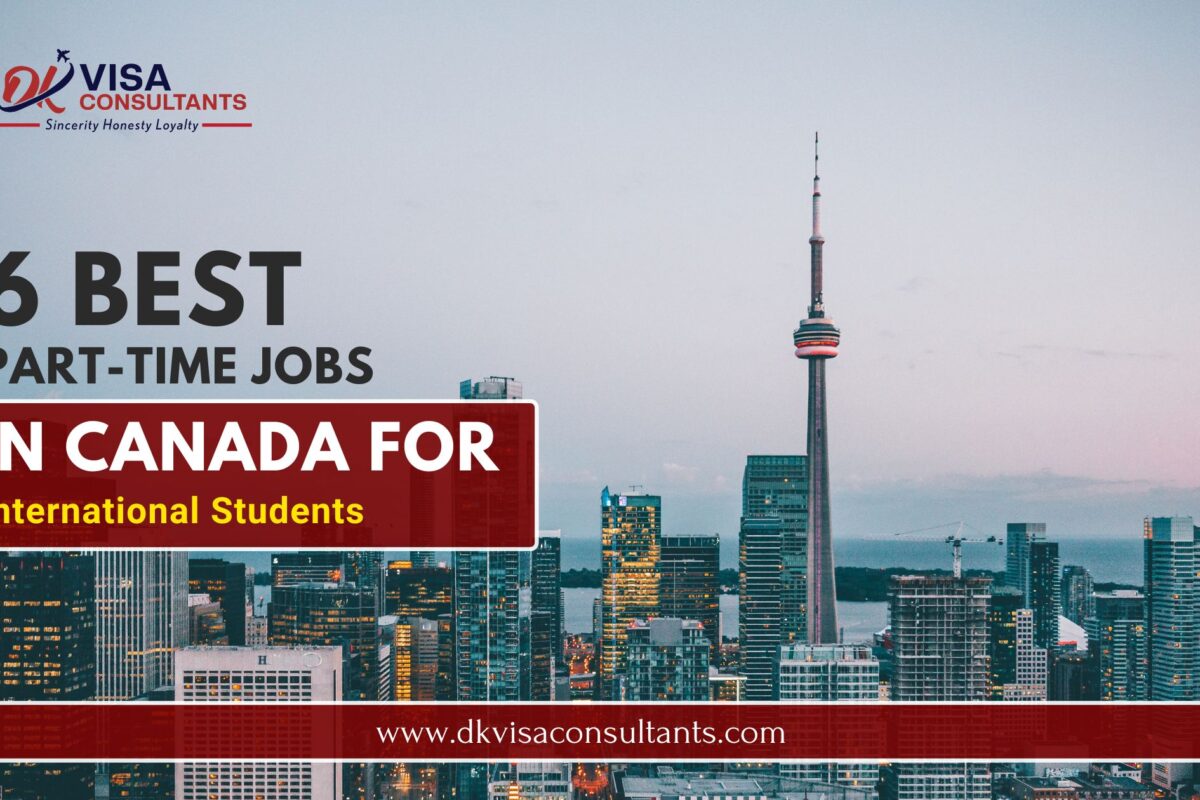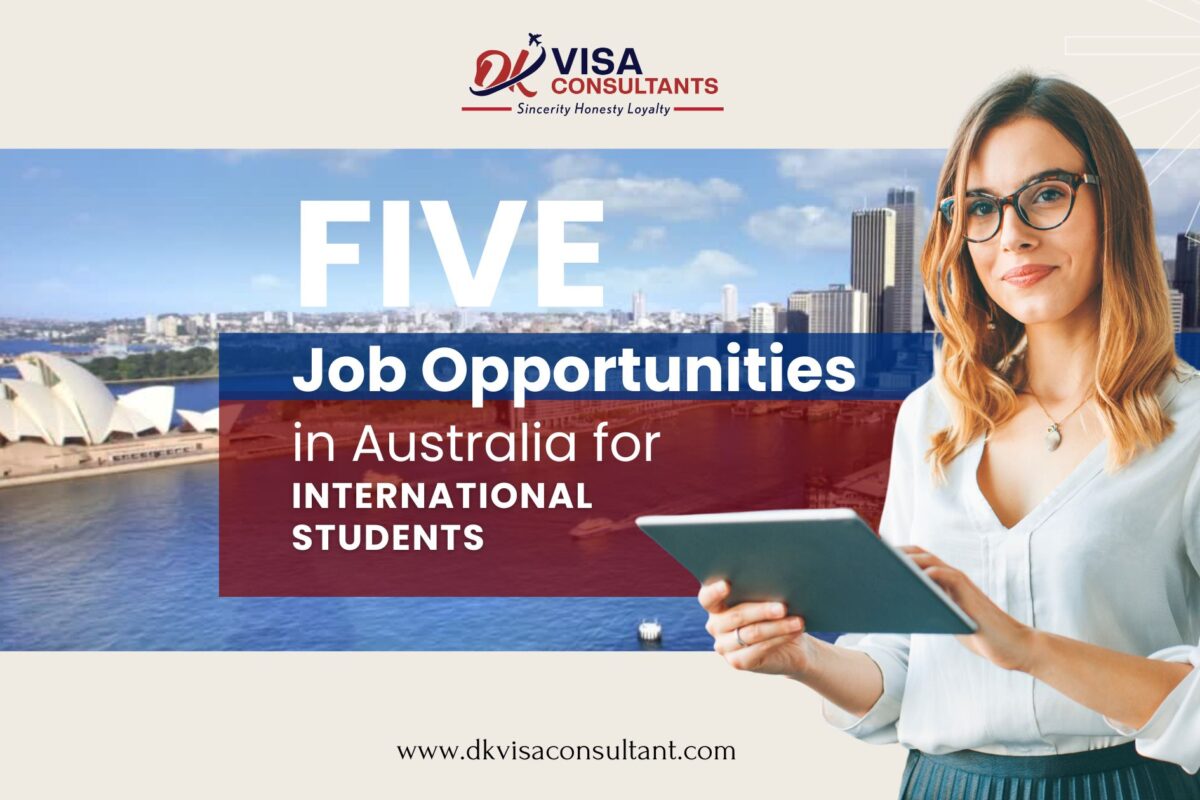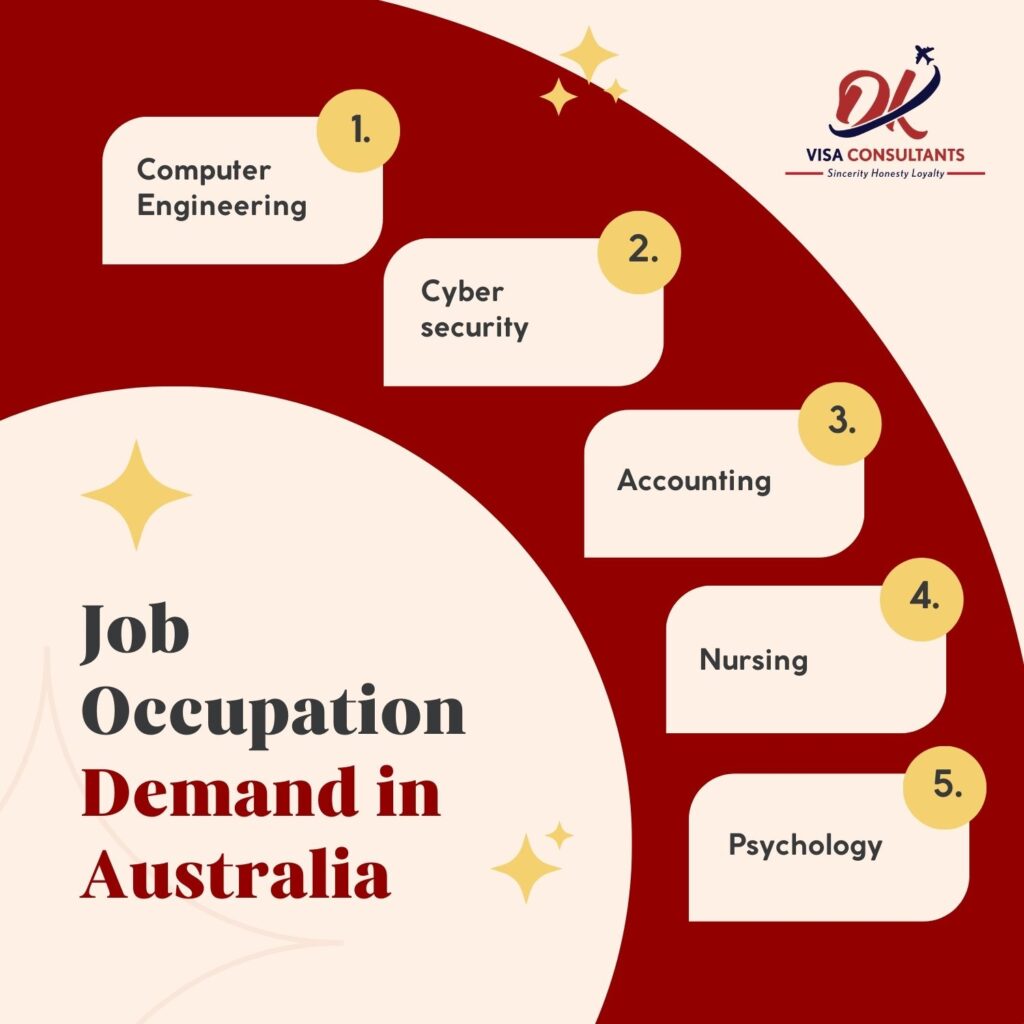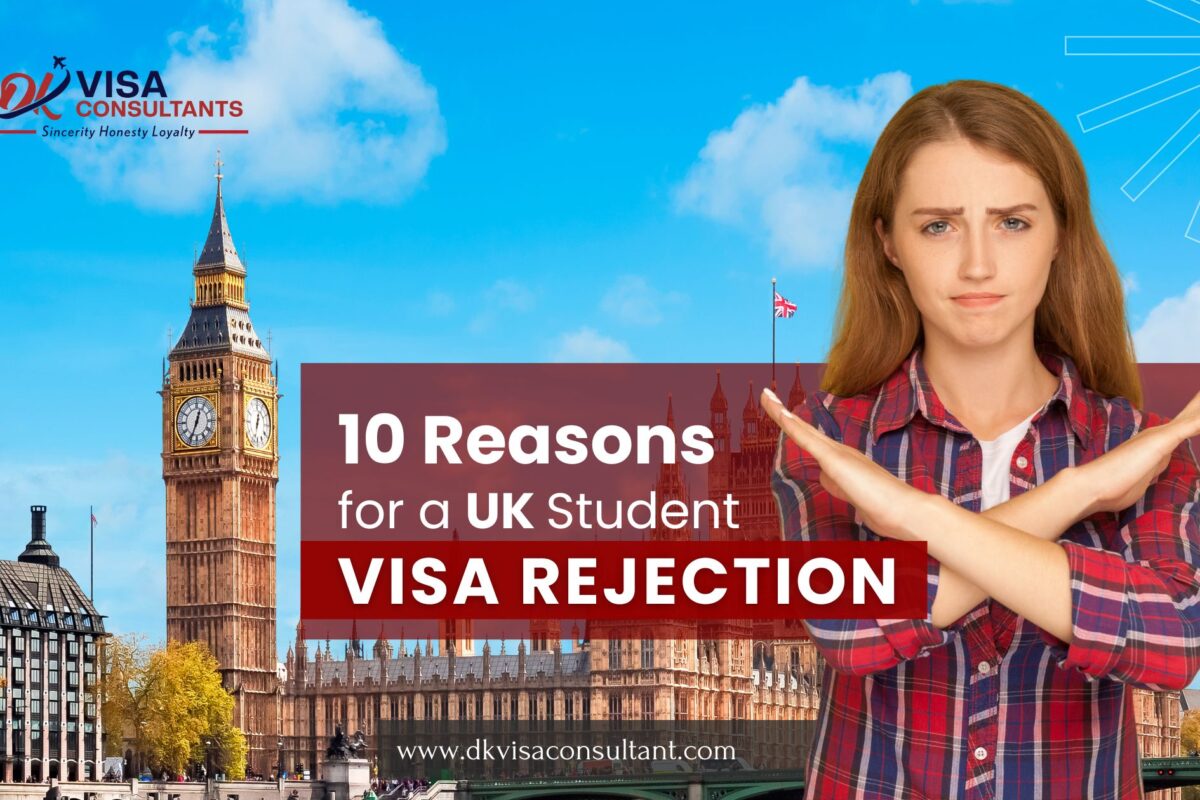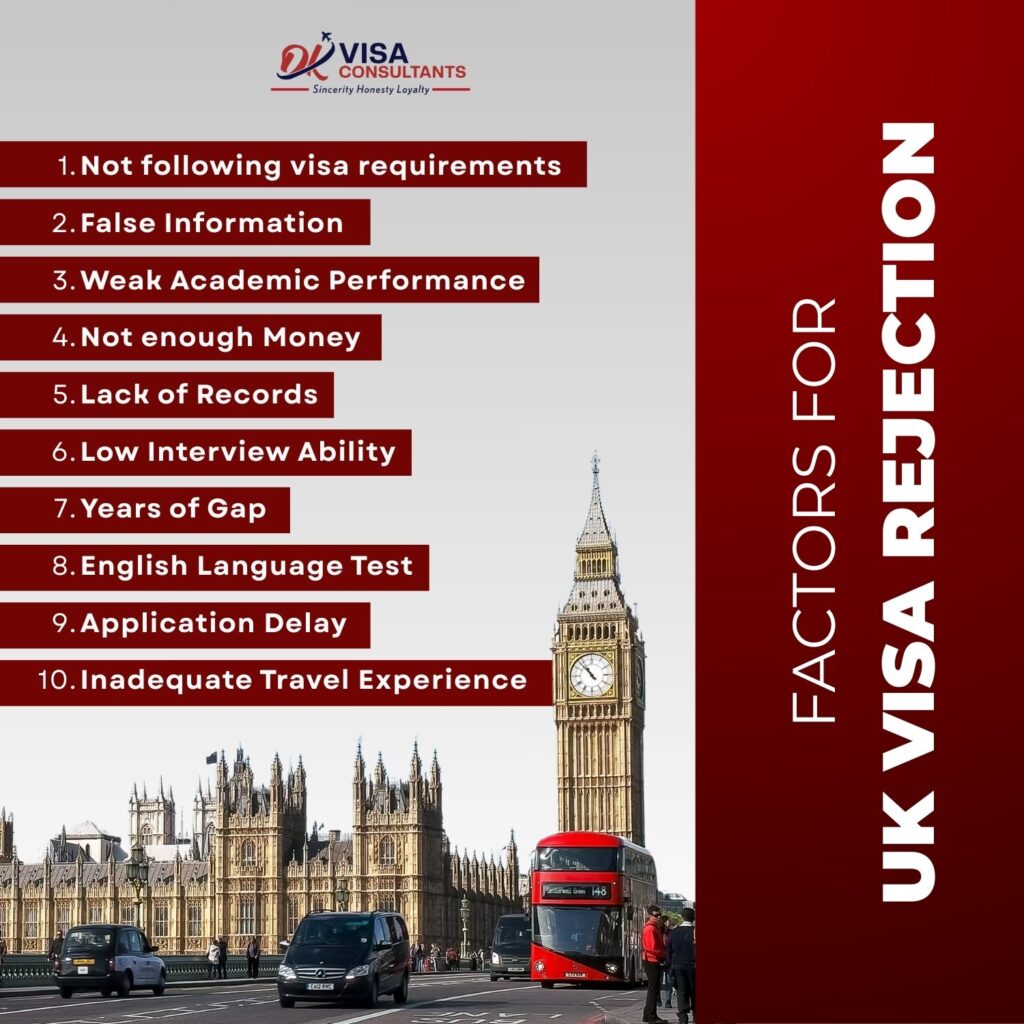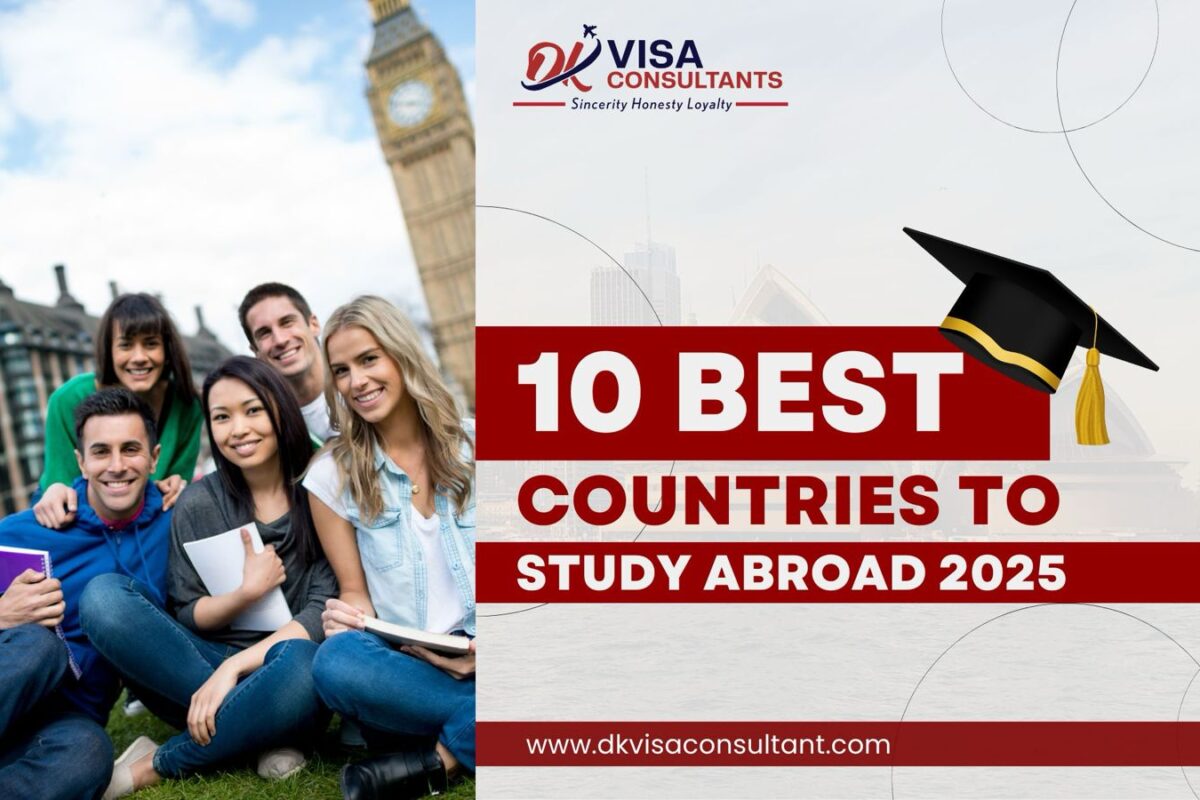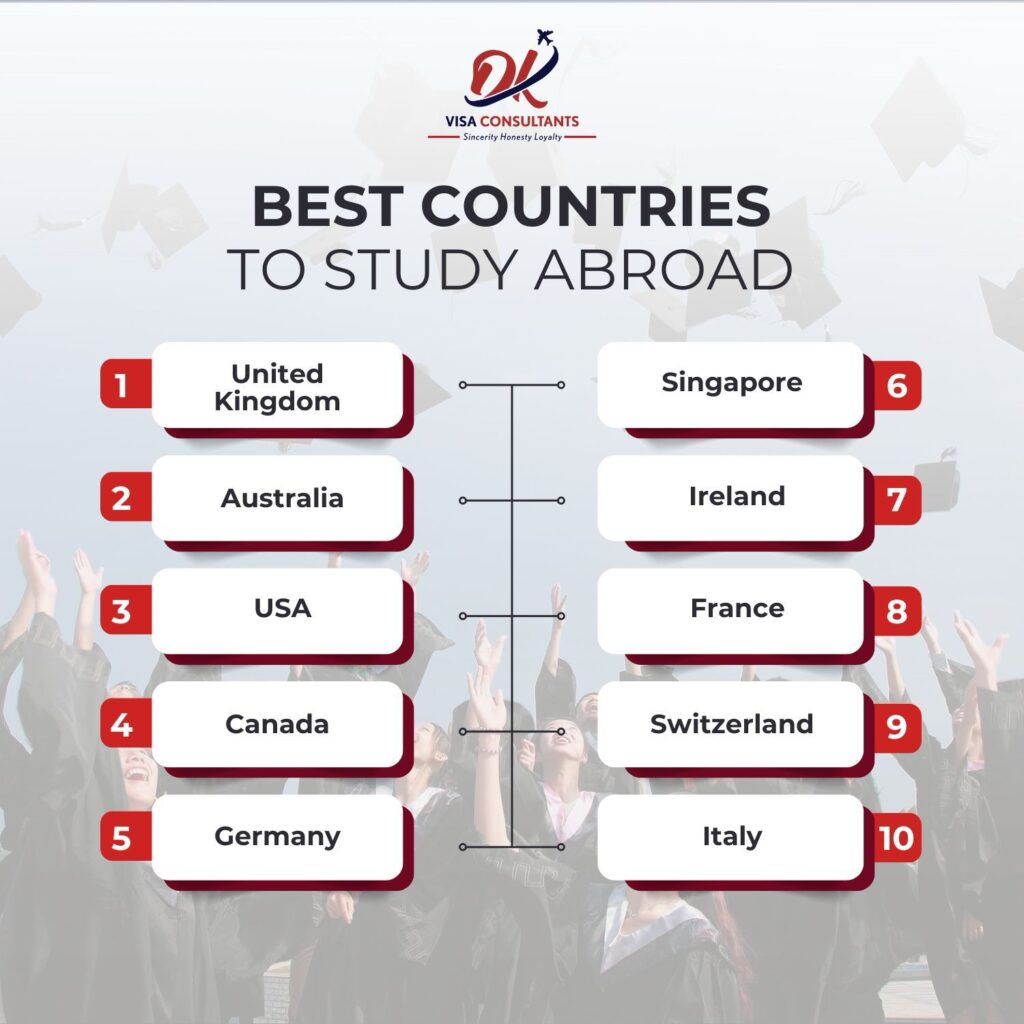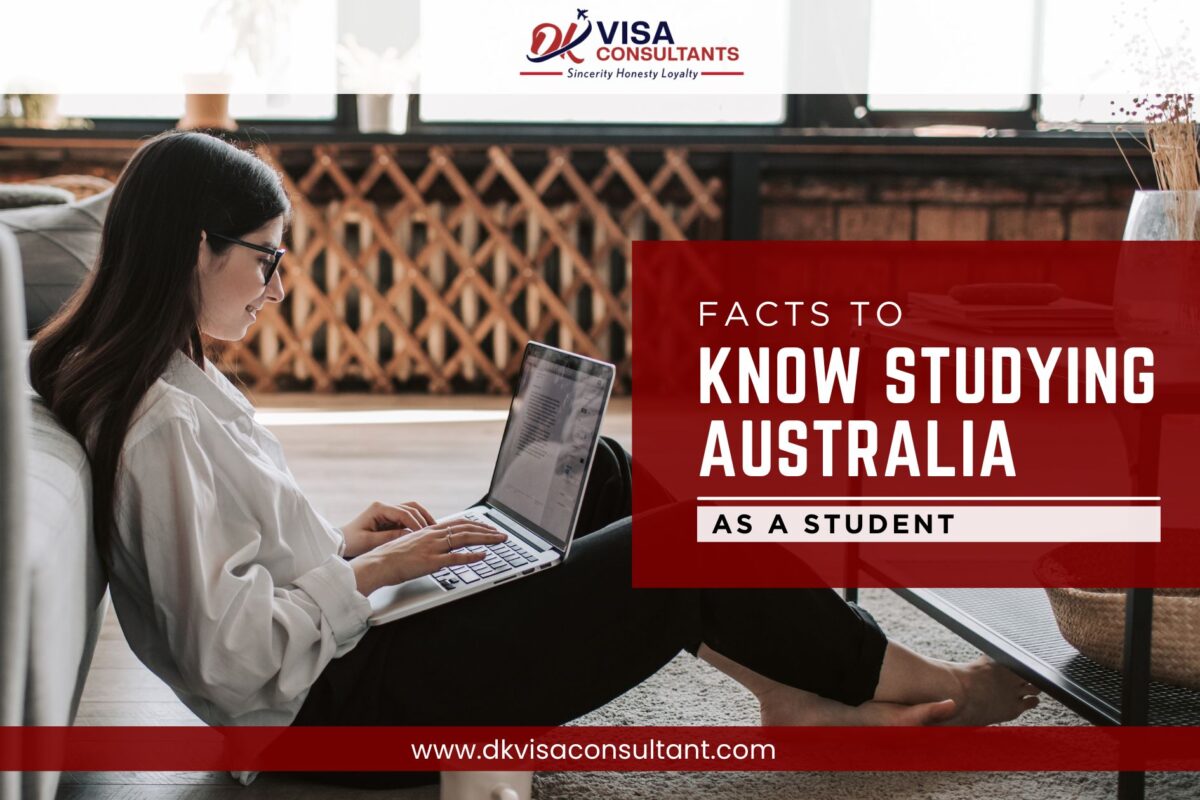Getting a part-time jobs to help with living and educational expenses is one of the best aspects about being an international student in Canada. Like the USA, studying in Canada may occasionally be costly, which is why having excellent employment possibilities is crucial.
To make individual time as a student more financially independent, we have done the research, combed through job sites, verified salaries, and produced a fantastic list of the best part-time jobs in Canada that pay well for international students.
Read the blog to know about the best part-time jobs for international students in Canada.
How to obtain a part-time job in Canada as international student?
Well, candidates are permitted to work both on and off campus without a formal work permit. Before they begin, though, there are a few things individual should be aware of.
To begin with, students must be enrolled full-time as an international student, which requires that they have a current study permission.
Second, applicant cannot begin working before their studies officially begin. To continue when their studies are over, they will also need to apply for a work permit.
Canada’s regulations regarding part-time Jobs:
Furthermore, during the ordinary academic term, overseas students are only permitted to work a maximum of 20 hours per week; however, during holidays, they are permitted to work up to full-time hours.
Students probably spend 15 to 20 hours a week in class, so this shouldn’t be a problem, and they will have plenty of study time outside of that. It would also be good to have some free time to enjoy life, socialize, and unwind!
Best Part-Time Jobs in Canada:
Below is the list of part-time jobs:
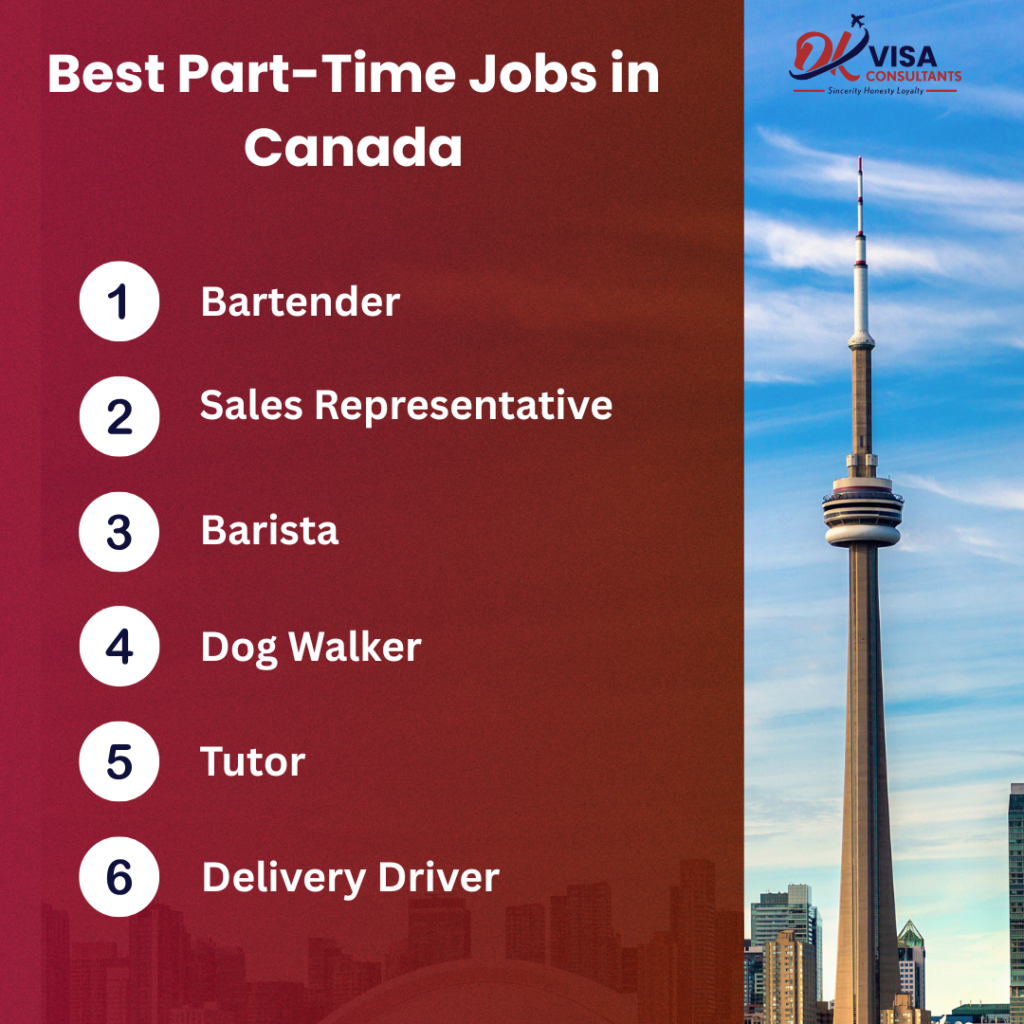
- Bartender
- Sales representative
- Barista
- Dog Walker
- Tutor
- Delivery Driver
- Bartender:

Although the work doesn’t pay the most per hour in Canada, keep those suggestions in mind! A 15-20% gratuity is customary in Canada, thus working as a waiter or bartender can be a terrific way to make hundreds or even thousands of dollars every week!
- Sales Representative:

Excellent for weekends when town and city centers are crowded with people shopping. Naturally, the pace of the job varies depending on where you work—in a supermarket, corner store, or clothes boutique.
In either case, the income is consistent, and some sales assistants may even receive tiny commissions for closing deals!
- Barista:

Not as lucrative as tips, but still a step above hourly wage jobs like waiting tables or bartending. Learning how to brew excellent coffee is not the hardest thing to do.
As an added benefit, if candidate work the early shift, they will witness folks really transform from sleepy zombies to energized humans in only one drink.
- Dog Walker:

People these days are willing to pay someone else to walk their dog since they are so busy with their lives. It’s insane, but it’s crazy good. Students may apply to a lot of dog walking companies or start their own business.
If they decide to go with the latter, keep in mind that they might have to apply for a municipal license if they live in a large city. After that, it’s usually a straightforward process that can set up on Google. All they must do is identify clients, get their dogs, and go out into the streets!
- Tutor:

t’s possible that you excelled in science, math, or any other subject in school. if you put those abilities to use in free time by working part-time with elementary or high school students.
Although the average tutor in Canada makes roughly $16 per hour, students are free to charge whatever they like (more or less). Even though they will need to be creative in their search for students, the power of social media these days will work.
- Delivery Driver:

One of the most well-liked part-time professions in the world nowadays is driving for services like Uber or Lyft. The money is excellent, and students may work whenever they want.
Apart from maybe unkind customers, the only problem is that candidate require an automobile. Therefore, they may wish to think about working as a bicycle courier instead. Bicycle meal delivery services, such as UberEATs, are available in most major cities. Although the salary is frequently just slightly more than that of driving a car (about $17 per hour), a bicycle is still far less expensive than a car!
Wages for Part-Time Jobs in Canada:
Check out the part-time jobs estimated salaries:
| Job | Estimated Salaries per hour |
| Bartender | CAD $13 |
| Sales Representative | $14 CAD |
| Barista | CAD $ 14 |
| Dog walker | $ 15 CAD |
| Tutor | CAD $ 16 |
| Delivery Driver | $ CAD 19 |
Finally, students choose to study in Canada for excellent educational system, ethnic culture, and high standard of living. It is an attractive place that offers a strong base for future success and fulfilling educational experience.
For more detailed information, visit DK Visa Consultant office and talk with our expert counsellors about study abroad.
FAQ
Q1. What are the part-time jobs earnings in Canada for overseas students?
Ans: Depending on the province, city, and kind of work, international students in Canada make an average hourly income of $13 to $20.42. During academic sessions, international students are permitted to work up to 20 hours per week, and during designated breaks, they are permitted to work full-time.
Q2. How much can an overseas student earn in Canada?
Ans: In Canada, the mean annual pay for overseas students is $62,425 or $32.01 per hour. However, the exact amount you may earn will depend on your profession, experience, and education level.
Q3. Can an overseas student study in Canada work 40 hours a week?
Ans: No, during academic sessions, foreign students are not permitted to work more than 20 hours a week. During planned breaks, they are permitted to work full-time.

